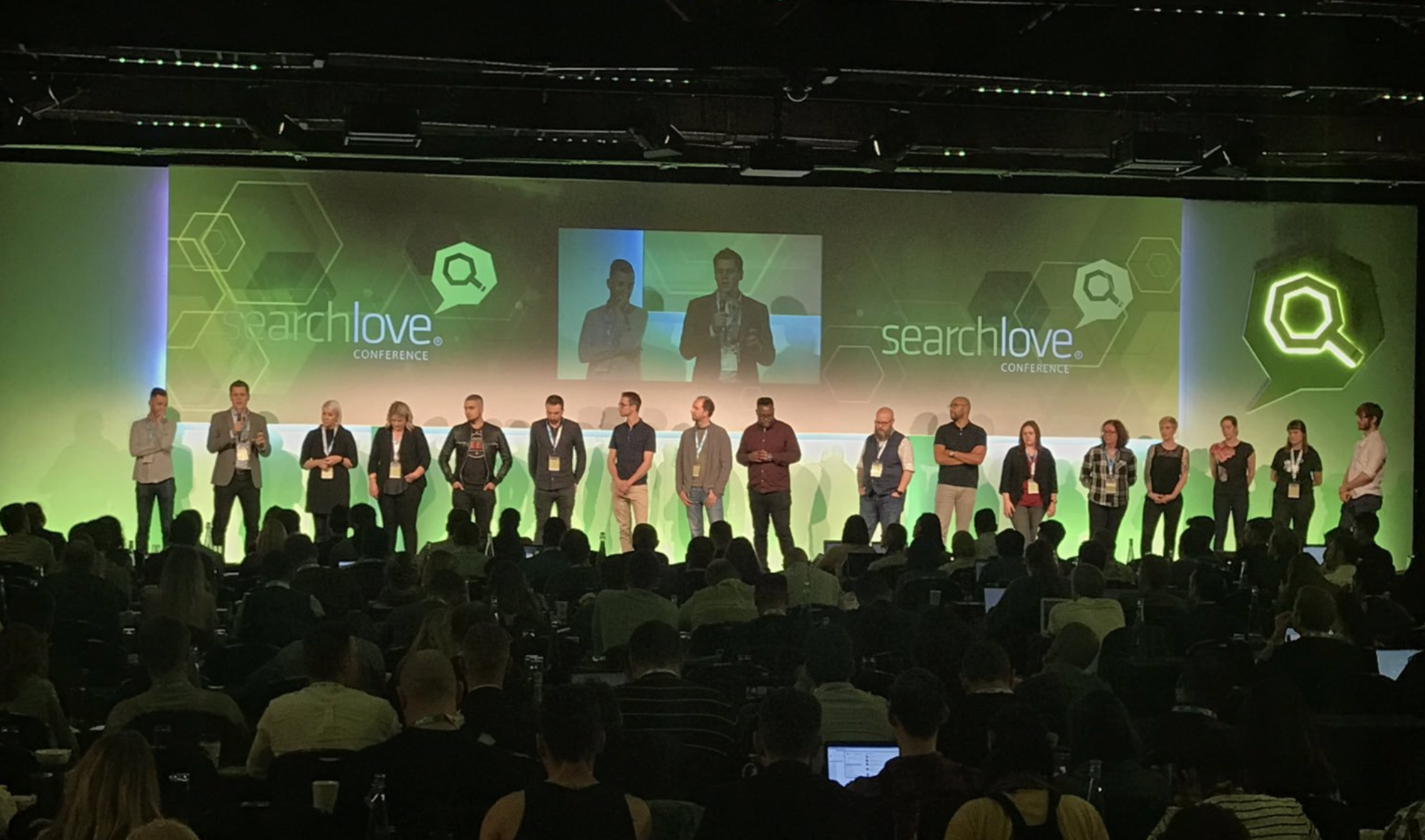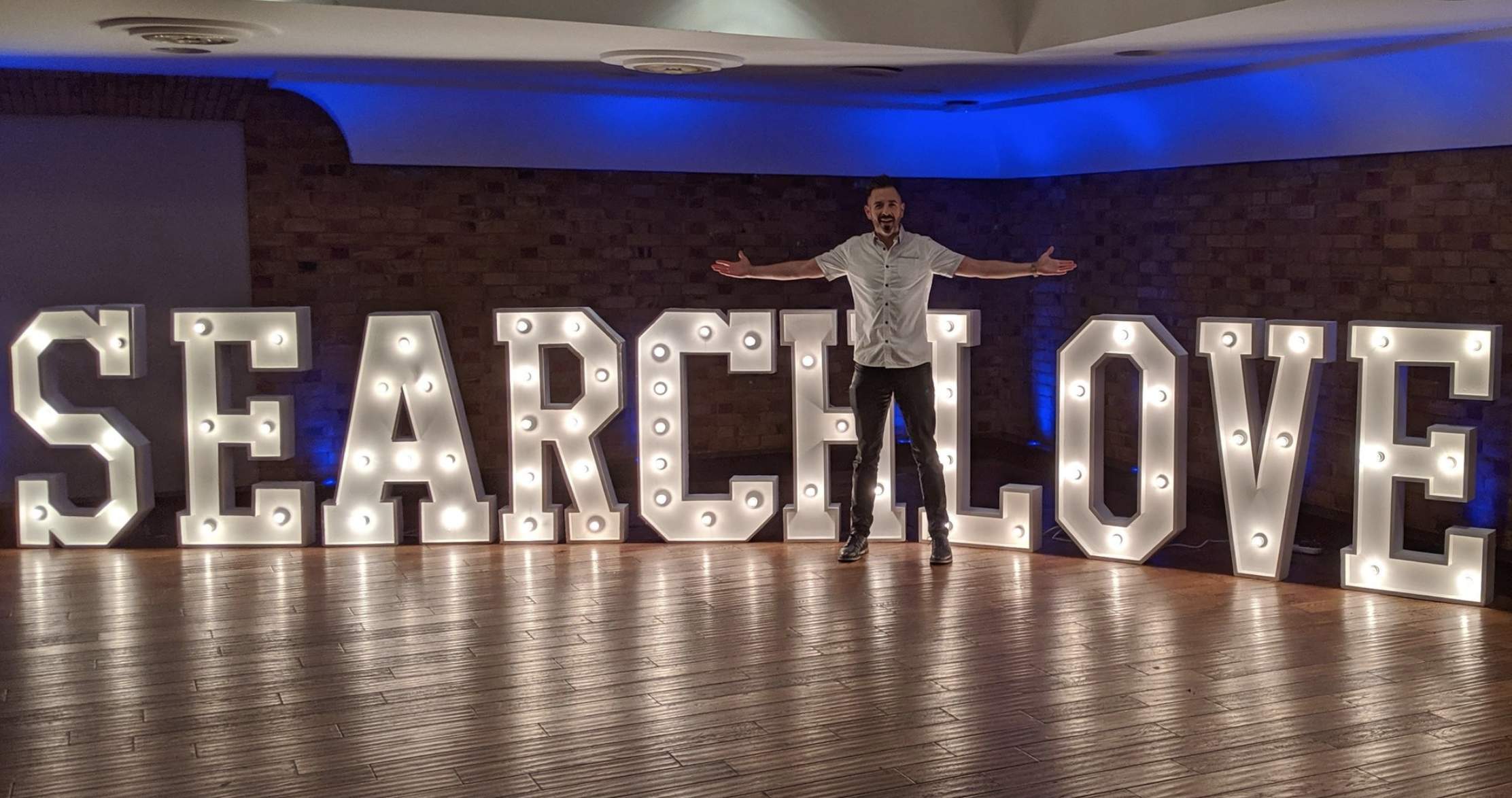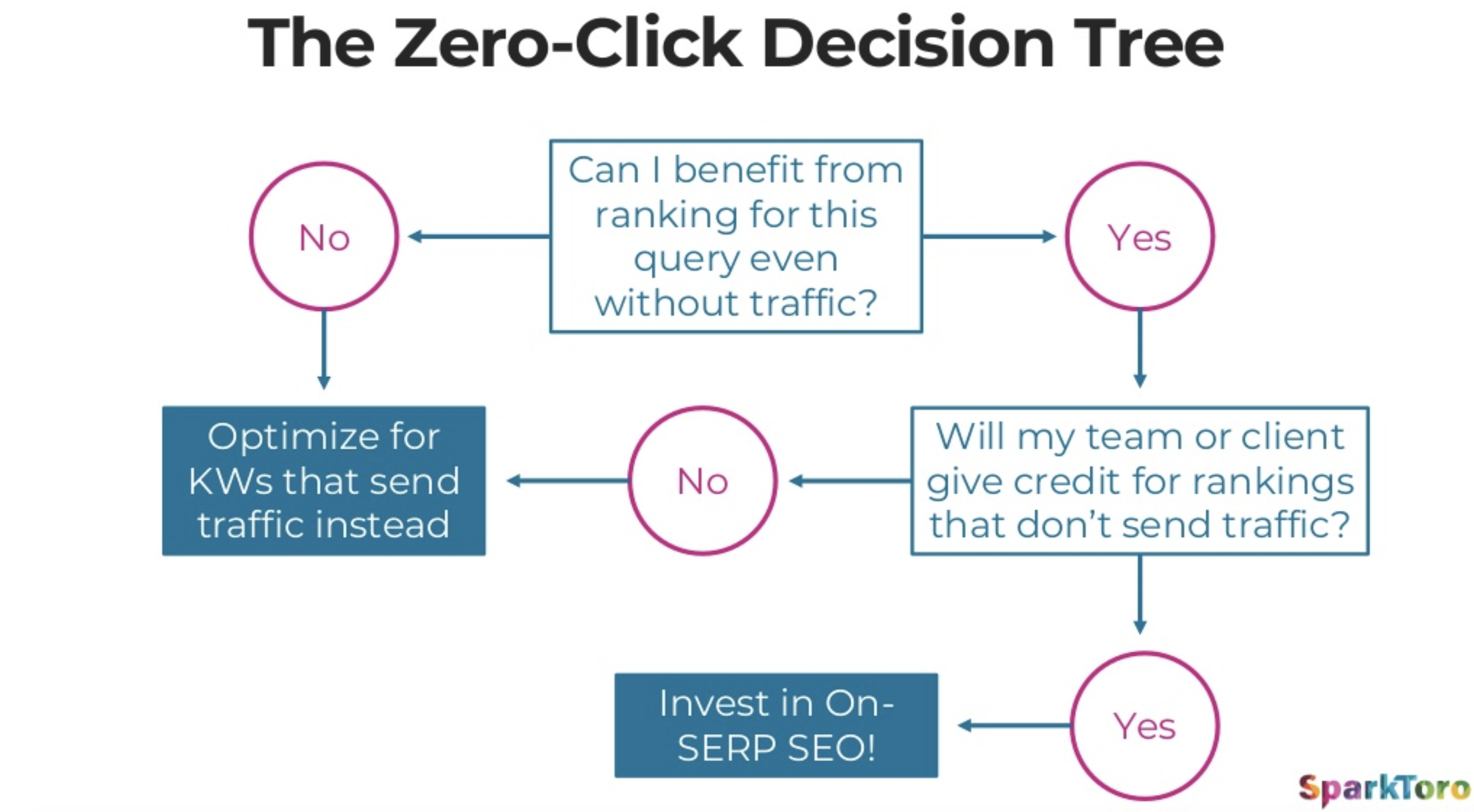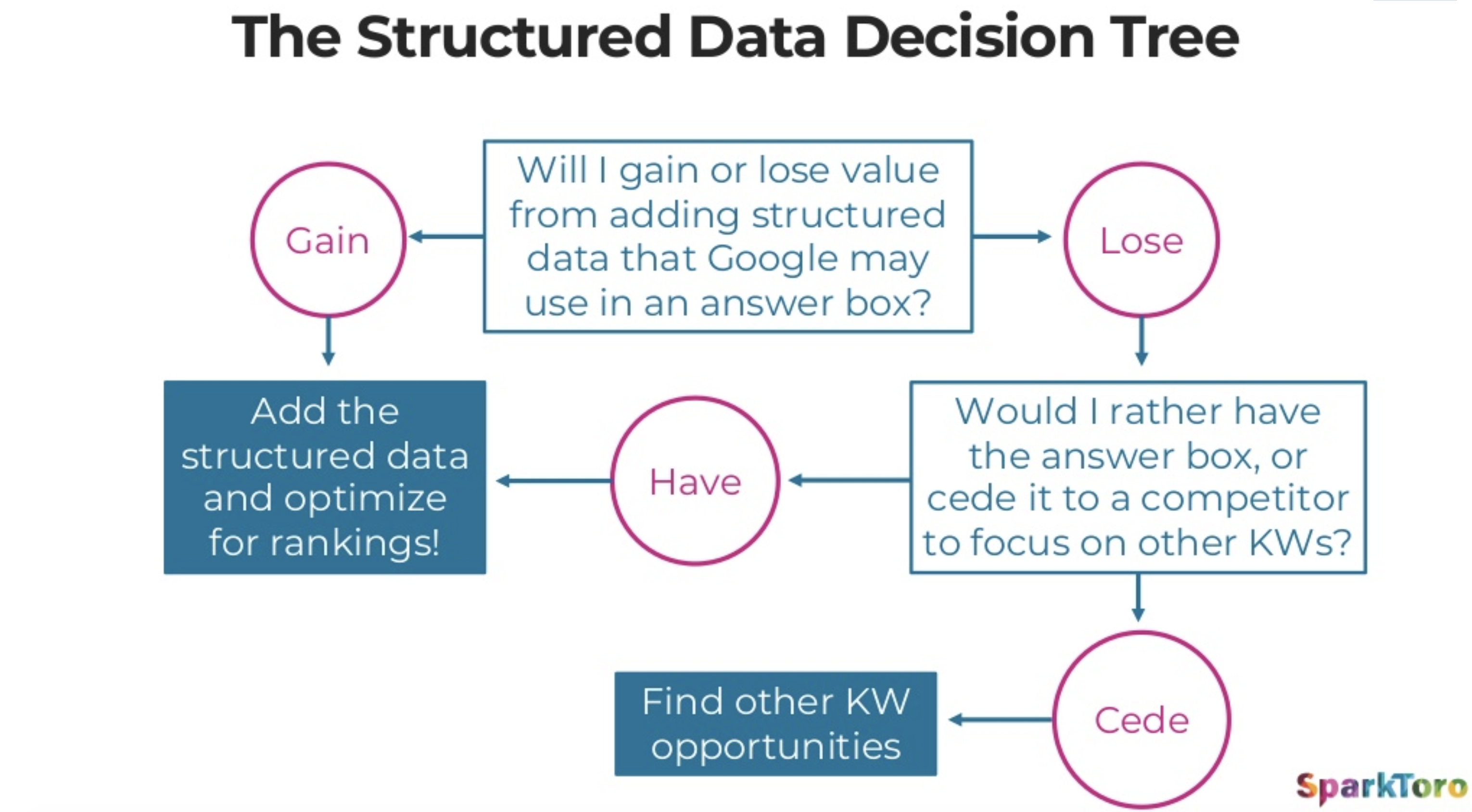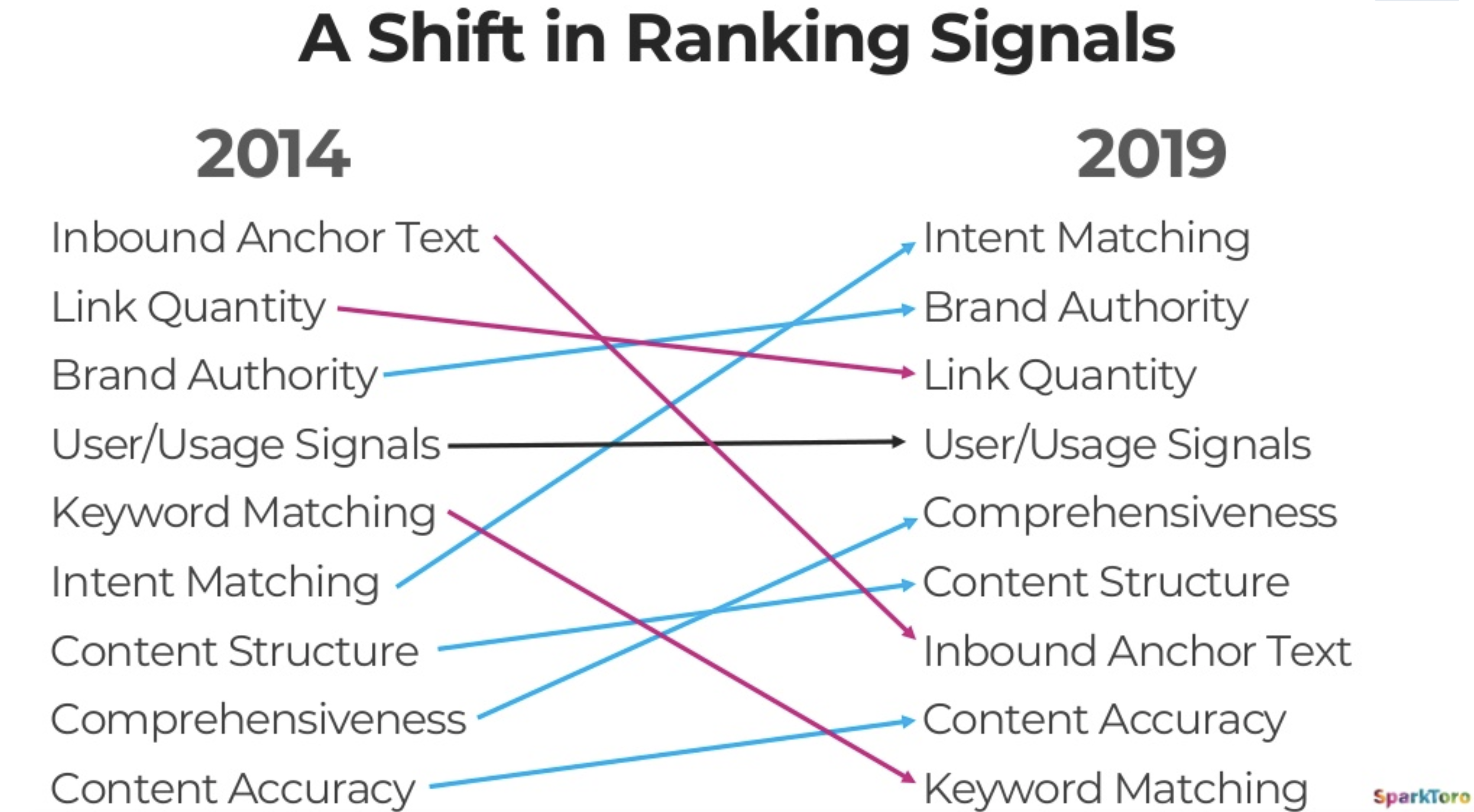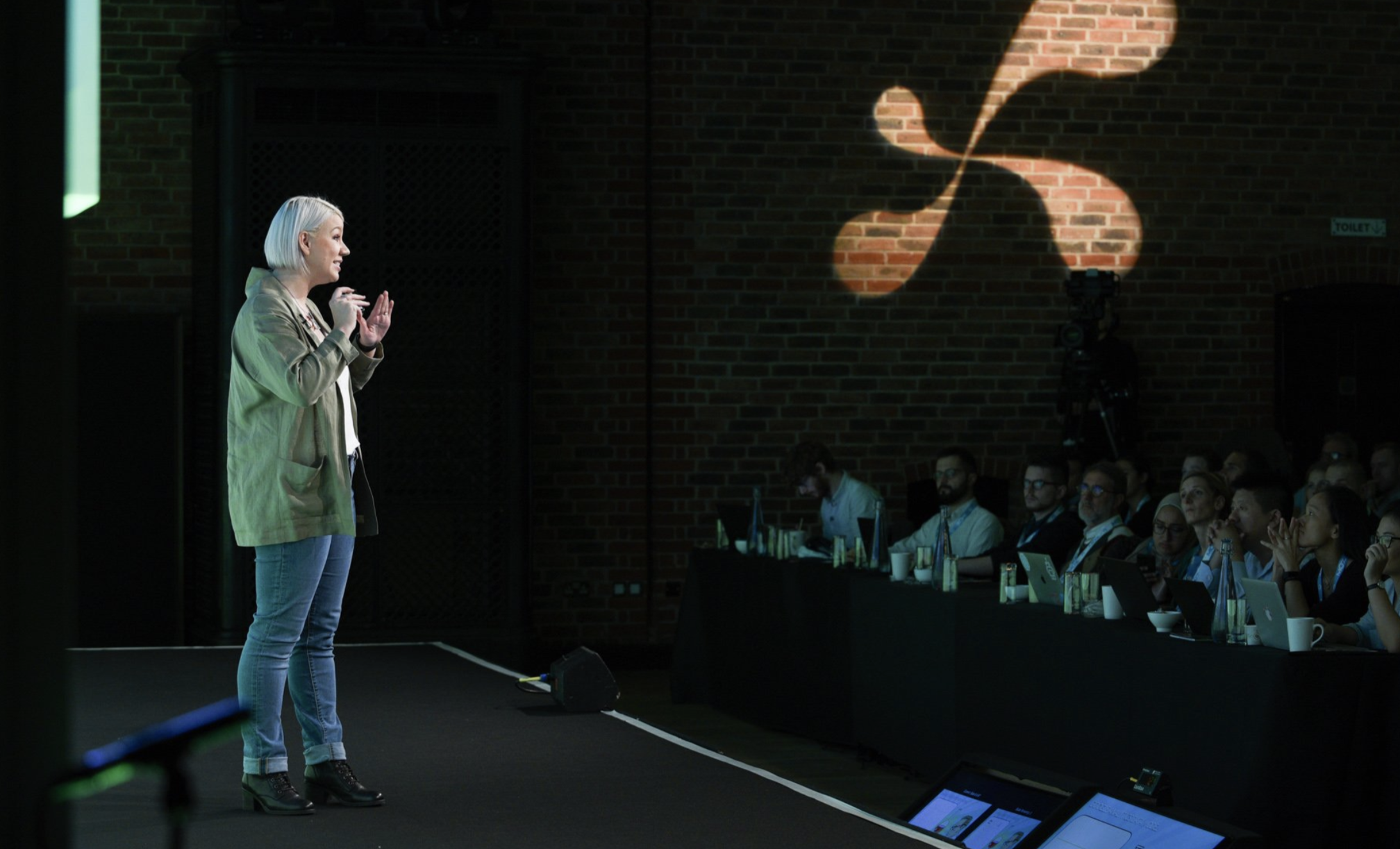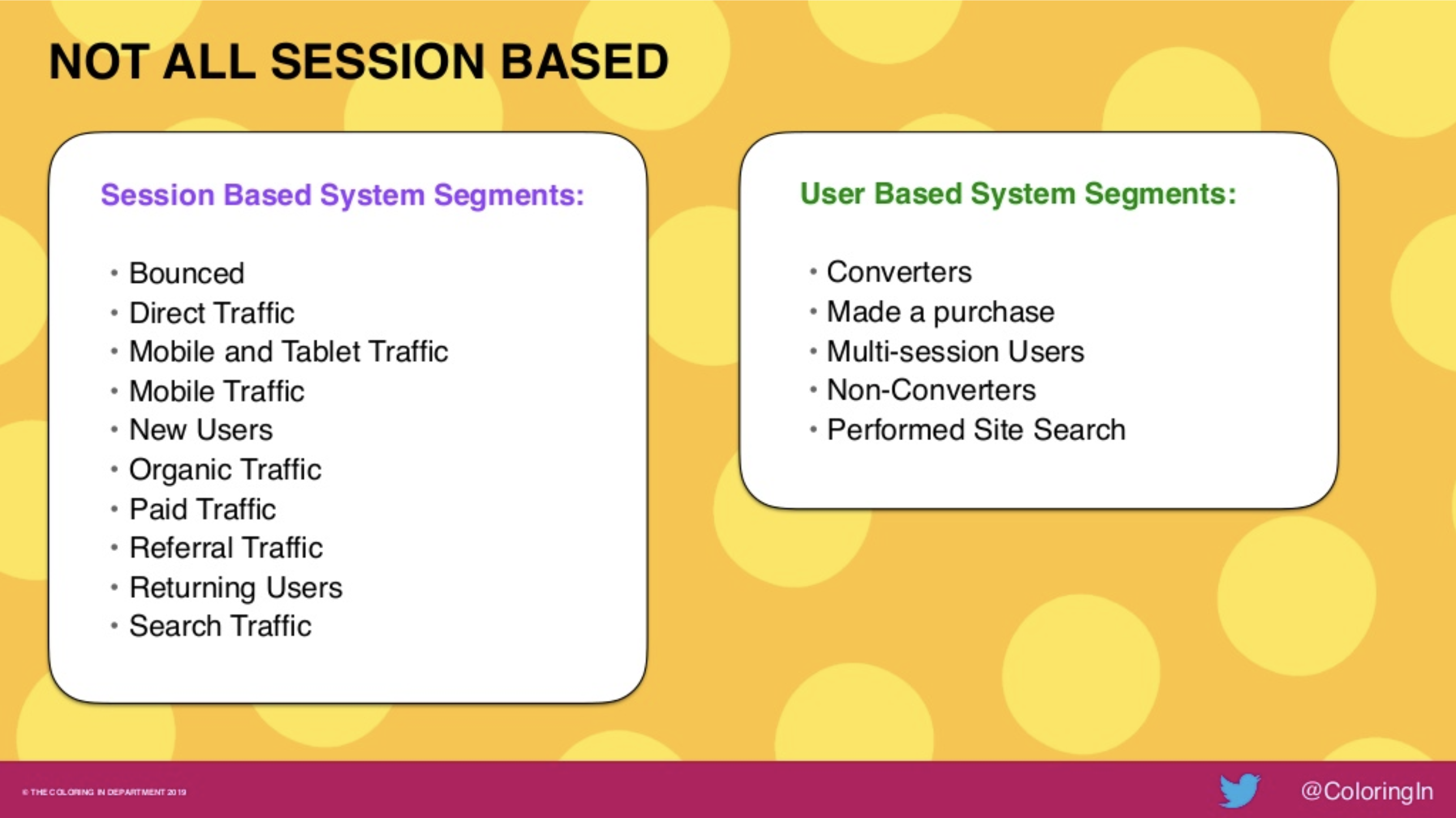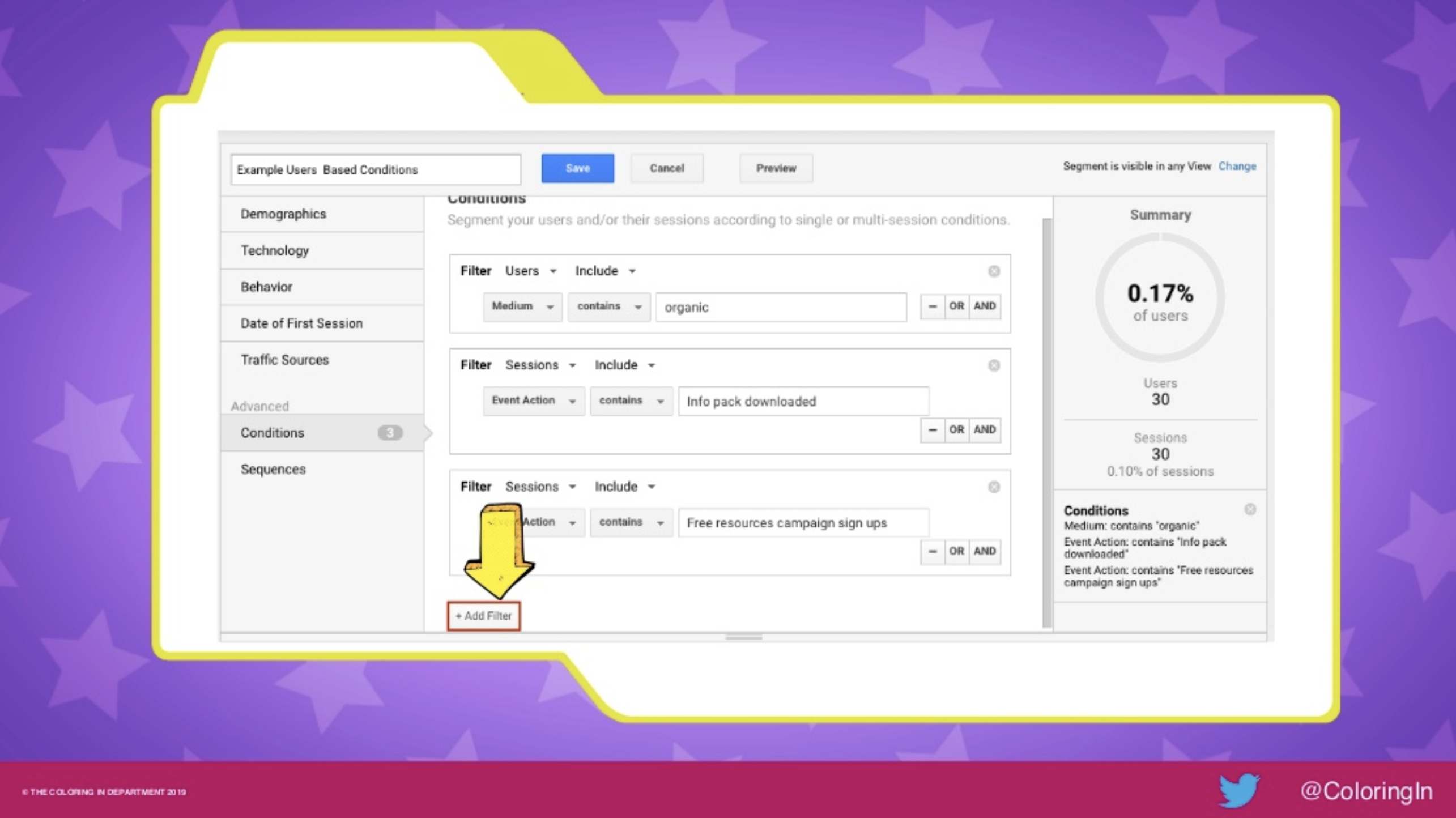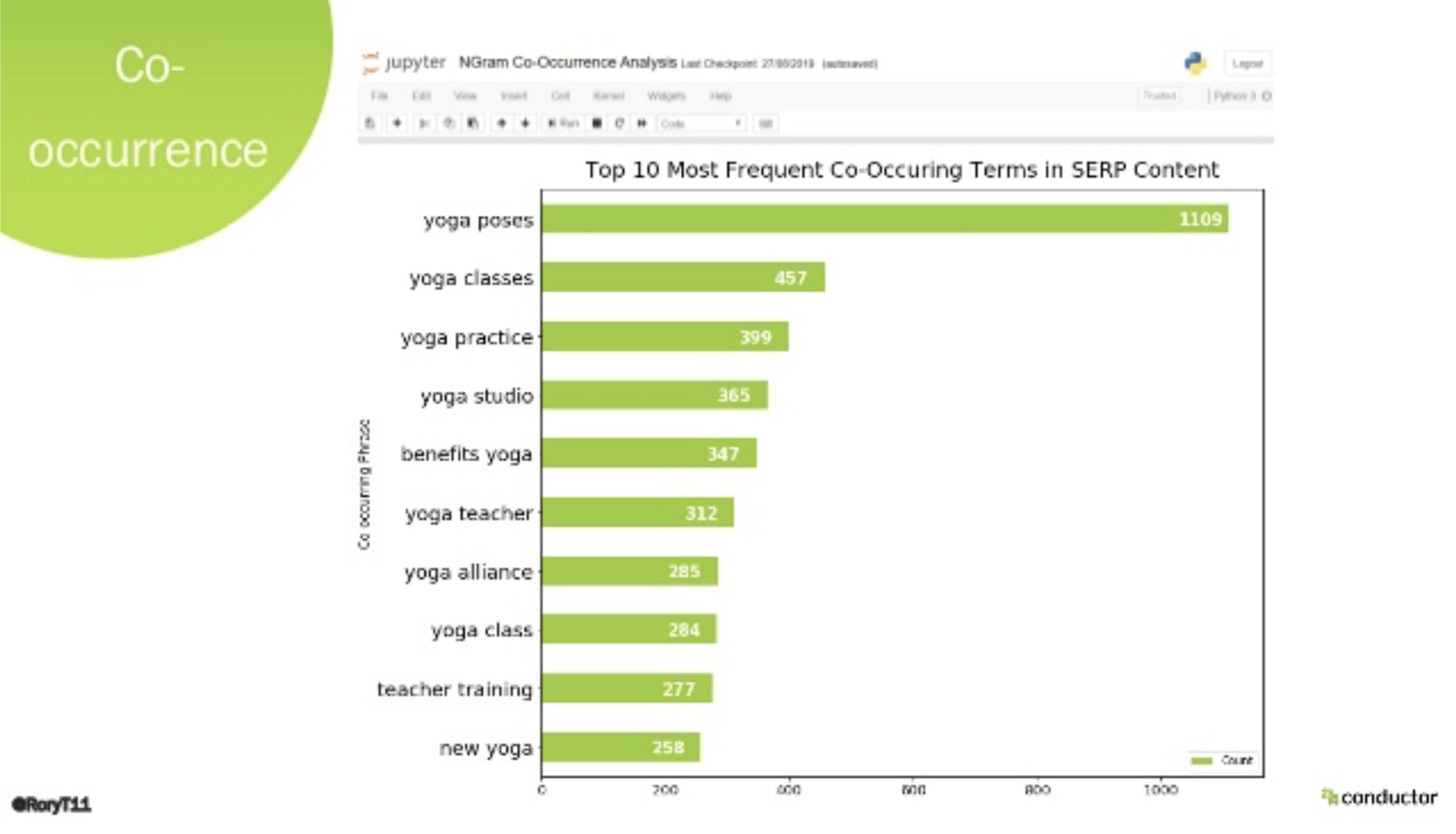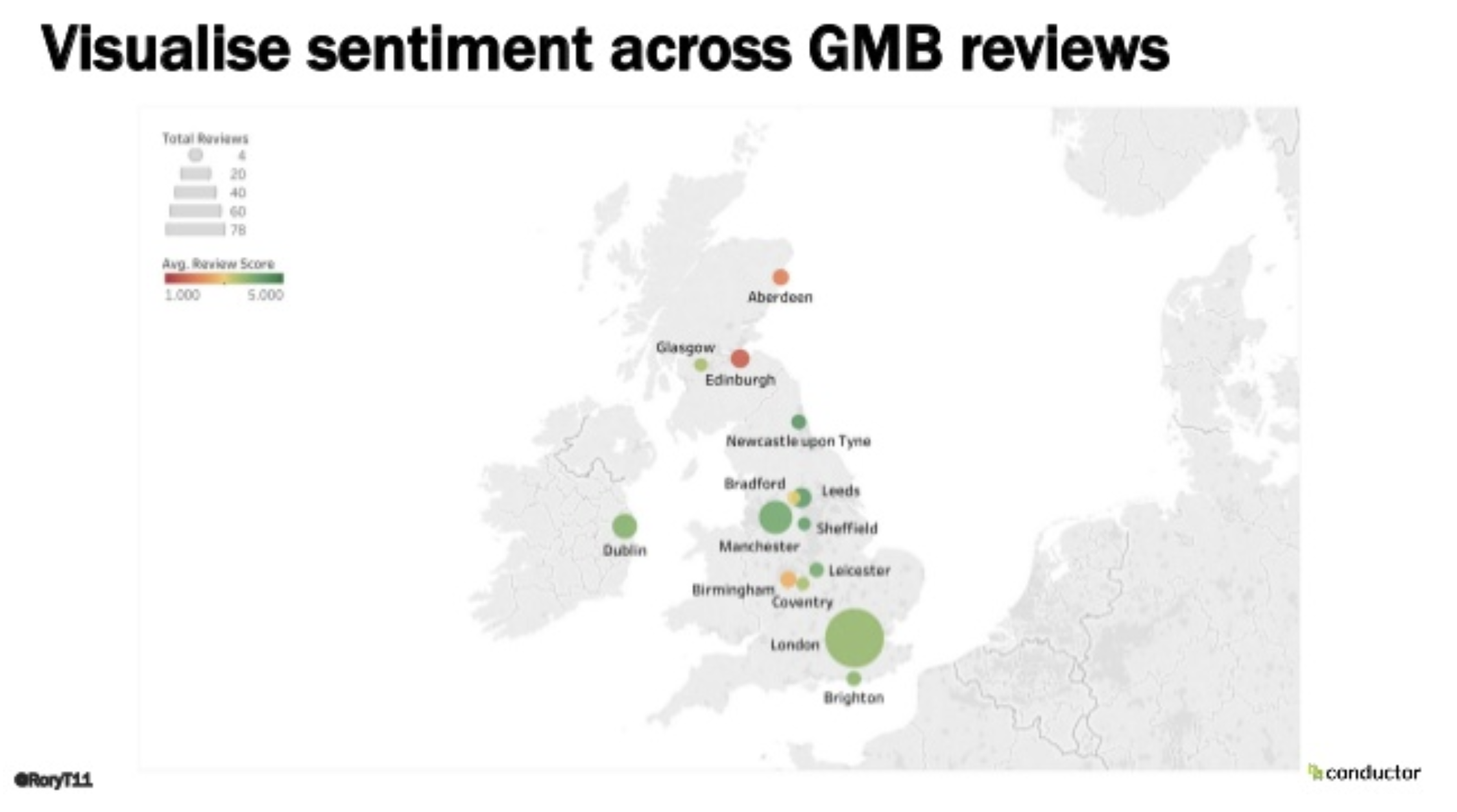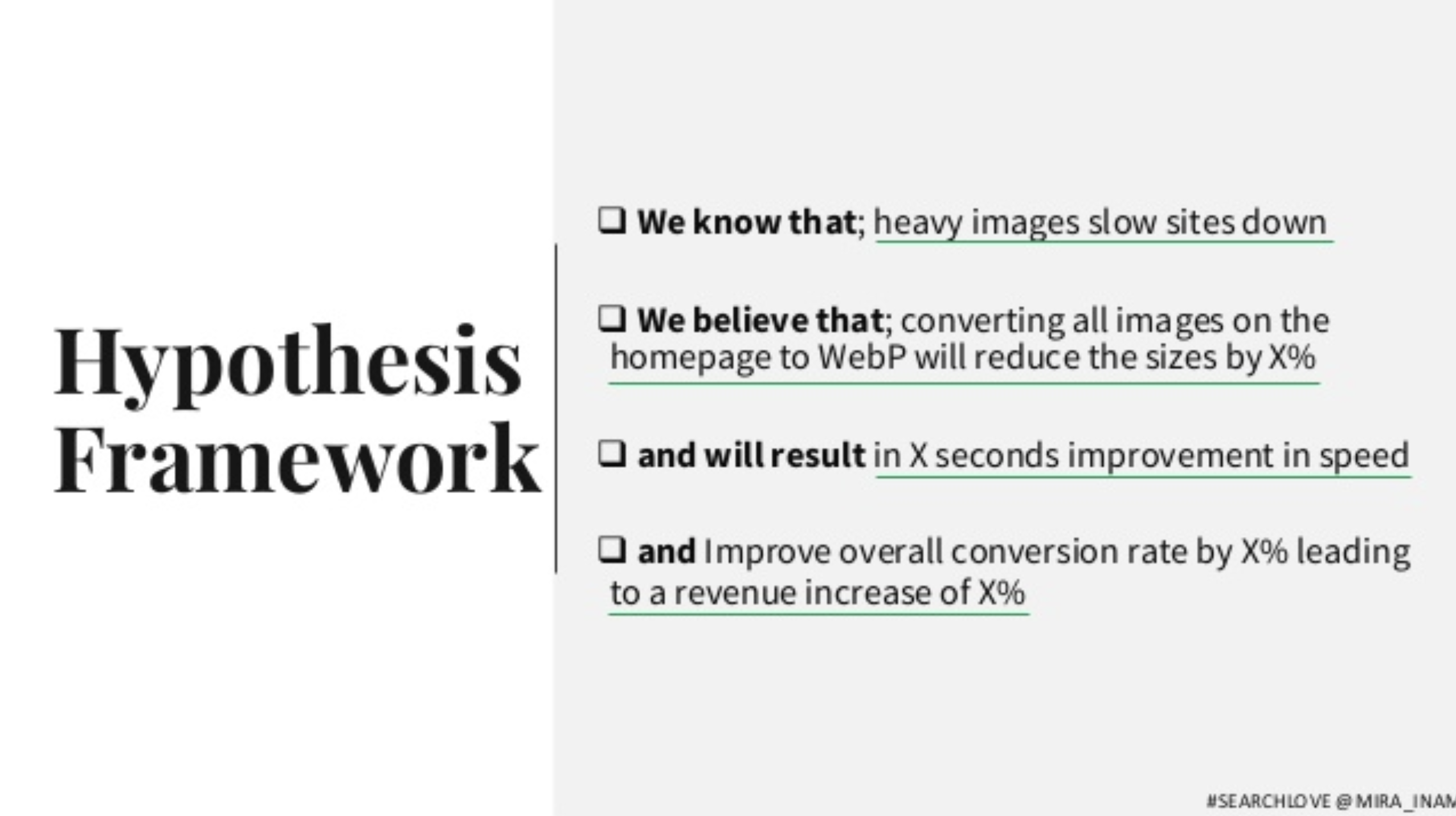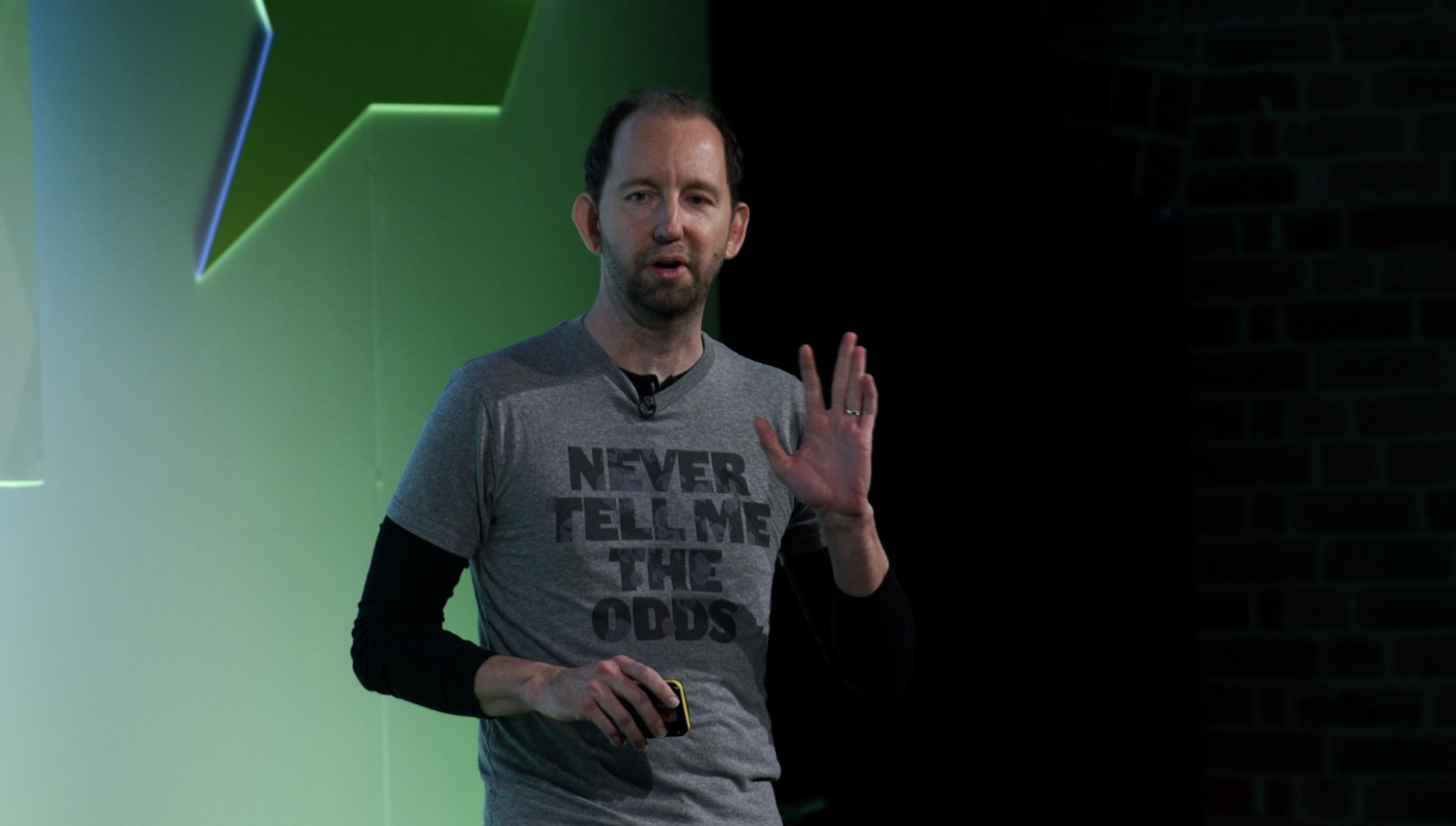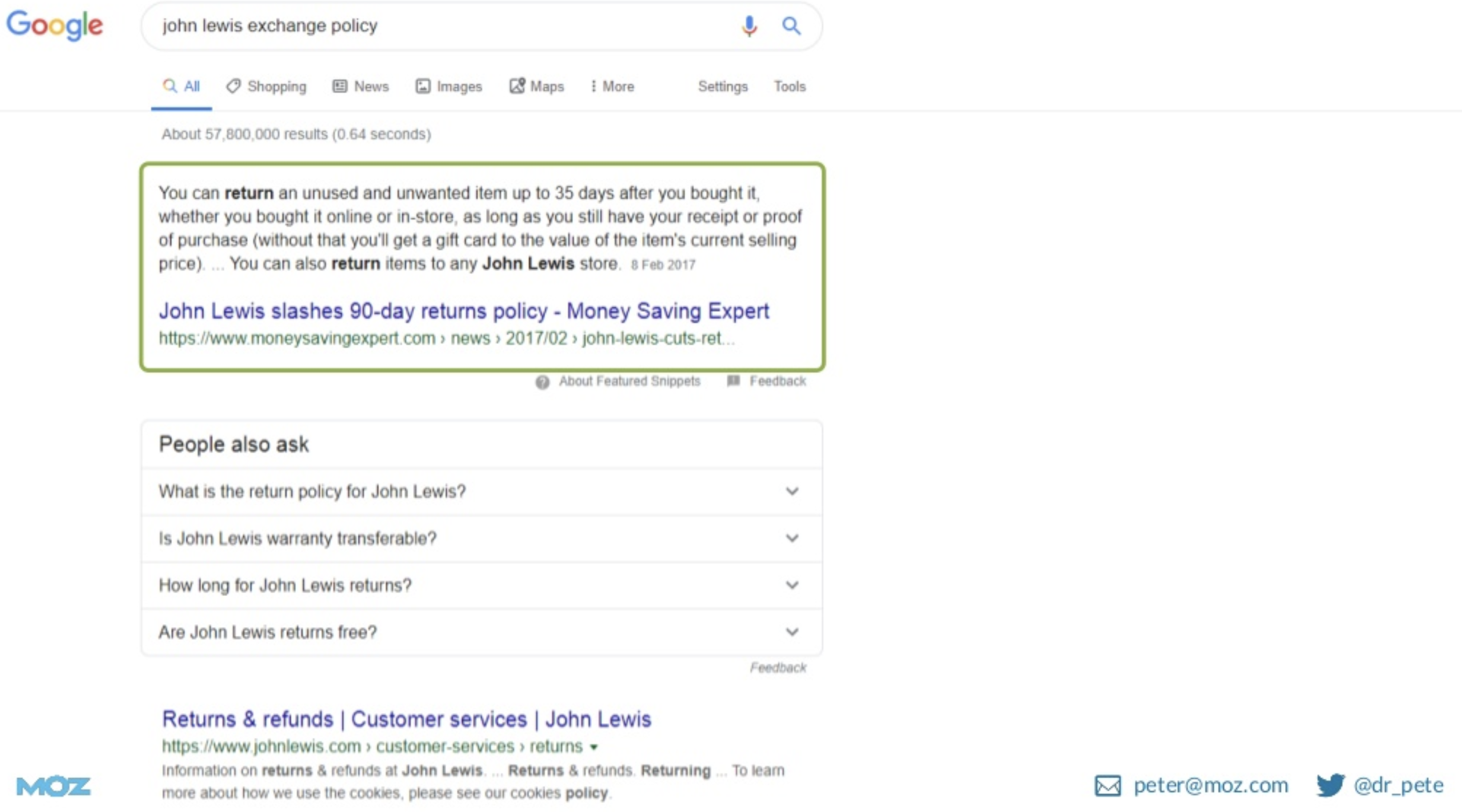Team members from both our Suffolk and Midlands studios converged in London to join the myriad of brand side, agency and search marketing thought leaders from around the world at this year’s SearchLove Conference.
Run by Distilled, and based in the UK, San Diego, and Boston, SearchLove London is an annual two day event held at The Brewery in the UK capital. SearchLove is a must, drawing a world class lineup of speakers from the digital marketing industry, discussing topics from internationalisation to local SEO best practices (and everything in between).
As you’d expect from a conference of this calibre, there was so much to take away from this event, so grab a coffee and join us as we delve into the range of topics covered and provide you with our key takeaways from the wealth of speakers across the 2 day event.
Index –
Marie Haynes
Sarah Gurbach
Greg Gifford
Luke Carthy
Andi Jarvis
Heather Physioc
Robin Lord
Jes Scholz
Rand Fishkin
Emily Potter
Jill Quick
Rory Truesdale
Miracle Imaneti
Faisal Anderson
Dr Pete Myers
Lindsay Wassell
Stacey MacNaught
Will Critchlow
SearchLove DAY 1 – Talk Highlights –
Speaker: Marie Haynes
Twitter: @Marie_Haynes
Talk Title: ‘Practical Tips for Improving E-A-T’
Deck Link: SlideShare
Talk overview: First up, Marie covered the key components of E-A-T (Expertise, Authority, and Trust) and how you need to consider how well your site is doing at conveying this. She also highlighted the role of E-A-T as an on-page signal and how Google’s Algorithms may be looking for it.
Key takeaways:
- Look at the Quality Rater’s Guidelines as this is associated with the start of the ‘FRED’ update. E-A-T and YMYL confirmed by Gary Illyes last week that algorithms exist that can be compared to these two concepts, so having accurate & trusted content is a ranking factor.
- Ask yourself, are you an authority in your niche/vertical? If you’re not an authority, stop trying to rank and compete with authorities that should be there over you.
- If you have lost rankings and all the other sites now ranking are higher authority you need to become that authority.
- E-A-T is really important to work on when rebranding a site e.g. consider the E-A-T information above the fold. Also make the contact information readily available as it’s an indicator of trust. For an Ecommerce website, ensure you have clear and visible customer service information like Refunds, Returns, Delivery, Terms etc.
- If you have reputation issues Google will probably not rank you very well. Marie shared an example of a brand with an article acknowledging their poor reviews.
- Does disavowing work in 2019? Marie shared evidence of large traffic increases as a result of this isolated task. Some of the links that were disavowed weren’t link spam in its simplest form, instead it was low quality syndicate sites created purely for link acquisition.
- Scientific consensus – use site references and make sure to point to authority site.
Speaker: Sarah Gurbach
Twitter: @TheGurbs
Talk Title: ‘Using Qualitative Data to Make Human-centered Decisions’
Deck Link: SlideShare
Talk overview: Sarah from Seer Interactive discussed how to quickly gain valuable insights through qualitative research.
Key takeaways:
- All algorithmic changes that Google make are based originally on a human behaviour/trend – not data
- Human behaviour cannot all be illustrated by numerical values and quantitative data
- There’s no substitute for talking directly with the customer to gather this information (can be as little as 5 customers and 10 questions).
- Don’t use leading questions which influence the responses that you get.
- Use tools to enable live feedback and to see how users engage with the website.
- Ask ‘if you were starting your search, what would you type into Google?’.
- Big data can tell you ‘what’ people do at scale, but only your customer can tell you ‘why’ they do it.
- Gather feedback on success pages after they’ve completed their purchase.
Speaker: Greg Gifford
Twitter: @GregGifford
Talk Title: Doc Brown’s Plutonium-powered Local SEO Playbook
Deck Link: SlideShare
Talk overview: Greg delivered a highly engaging talk about all things local.
Key takeaways:
- Review the annual Local Search Ranking Factor report, a summary of the key factors from local SEO experts. Compare those factors that have different weightings year on year to ascertain what now has a greater or lesser impact.
- Local Link Building is about hyper local links irrespective of authority or follow. Get simple local low-authority links from Churches, communities etc.
- Need the visit data to build the quality of GMB listings
- It’s not about the number of citations. Just focus on the citations that are triggered in the top results for queries relevant to your business.
- Pay attention to the third party review site that they use across devices. Make sure the reviews are strong across each device.
- Need to review the Q&A section as anyone can answer a user’s question – based on upvotes
- Users can often use this like a ‘chat’ function so make sure it is monitored
Speaker: Luke Carthy
Twitter: @MrLukeCarthy
Talk Title: Finding Powerful CRO and UX Opportunities Using SEO Crawlers
Deck Link: SlideShare
Talk overview – Luke discusses how you can use a site crawler such as Sitebulb, Screaming Frog, DeepCrawl etc to unearth Ecommerce opportunities.
Key takeaways:
- Consider the internal search experience. Is there a potential for more than a ‘no results found’ response?
- Understand the relationships between products. Don’t just offer alternatives look for complementary products too. Many big retailers are overlooking the upsell potential.
- Scrape competitor sites for prices, review and stock. Are you cheaper than competitors? Do they even have the product?
- Combine multiple sources to spot trends and get comprehensive answers
- Custom extraction can help with UX and generate additional sales from the same traffic
Speaker Name: Andi Jarvis
Twitter: @AndiJarvis
Talk Title: ‘The Science of Persuasion’
Deck Link: SlideShare
Talk overview: Andi Jarvis explores a number of psychological techniques used to influence consumer behaviour.
Key takeaways:
- Scarcity drives demand.
- How status and lifestyle choices can convey authority and the subsequent impact on behaviour.
- The principle of liking. We like to work with and buy from people who look like and/or reflect us. This underpins the role of influencer marketing in the overall mix.
- Social proofing aides the issue of uncertainty – look to others and see what is ‘normal’ to know how to act and behave.
- Giving consumers small gestures has been found to significantly increase a user’s view or opinion on a brand. The example was Caterpillar who gave away a free pair of socks with a purchase of their boots. However, giving a small bag of Haribo was seen to work more effectively.
Speaker Name: Heather Physioc
Twitter: @HeatherPhysioc
Talk Title: Building a Discoverability Powerhouse: Lessons from Integrating Organic Search and Paid
Deck Link: SlideShare
Talk overview – Heather discussed the importance of not having specialists working in silos. Under the umbrella term of ‘Discoverability’, she discussed, and provided a framework for, how paid search specialists and SEOs can work together more effectively.
“Complementary search teams and interdisciplinary search teams aren’t the same. Interdisciplinary teams bring unique knowledge and experiences to create new, cohesive, custom offerings – then it makes them repeatable and refinable as similar needs arise.”
Key takeaways:
- Breaking down the silos between disciplines
- Interdisciplinary – as a new strategic edge within roles in their organisation.
- Having both paid search and SEO teams on the same page, this helps with upselling and cross-selling. Focusing on dominating the SERP. Knowledge sharing becomes second nature.
- How to implement within your team/agency
- Noone feels the pressure to know everything and aren’t afraid to ask for help.
- An innovation culture, find the points of friction and streamline processes.
“Building the world’s most connected brands starts with the most connected teams.”
Speaker Name: Robin Lord
Twitter: @RobinLord8
Talk Title: ‘Excel? It Would Be Easier to Go to Jupyter’
Deck Link: DropBox
Talk overview: Robin discusses how we can help to make efficiencies in our working days by automating them through Jupyter.
Key takeaways:
Project Jupyter exists to develop open-source software, open-standards, and services for interactive computing across dozens of programming languages.
- Download Jupyter and start putting what Robin discussed in practice.
Speaker Name: Jes Scholz
Twitter: @Jes_Scholz
Talk Title: Giving Robots an All Access Pass
Deck Link: SlideShare
Talk overview: Jes uses the analogy of entering a nightclub to explain how Googlebot interacts with your site . She proceeds to explain some common errors, warnings and exclusions that are common within the Google Search Console Coverage report and likens them to the engagement with the bouncer on the door. Following her advice, you’ll make your way to the very exclusive Club Valid.
Key takeaways:
- Sites shouldn’t have ‘Excluded’ Links within the XML Sitemap and GSC. This is an architectural problem and waste of crawl budget.
- Duplicate Content is natural – manage it rather than fear it.
- 404s are exclusions not errors (often misunderstood). Users understand what’s happened rather than 301-ing to a different page and can, sometimes, be a better user experience.
Closing session – ‘Let’s Get Real’
The closing session of the day was about getting all the speakers from both days on the stage for one piece of advice. They varied in a complexity and controversy but some useful takeaways.
Day 2 – Talk Highlights
Speaker Name:Rand Fishkin
Twitter: @RandFish
Talk Title: The search landscape in 2019
Deck Link: SlideShare
Talk overview– This broad look at search trends and searcher data, Rand explores the key changes affecting search marketers and those seeking to earn influence through Google. From zero-click searches, to tough choices on structured data, to the new ways Google is using information consensus and weighting particular types of authority, this presentation will make every marketer a more strategic thinker about search.
Key takeaways:
- Mobile hasn’t killed desktop, Desktop usage has stayed the same mostly, it’s hours spent on mobile that has increased and taken up our free time.
- Rand shared some usage predictions that: 50% of all searches will be voice searches by 2020 and about 30% of searches will be done without a screen by 2020.
- Rands Tip was currently doesn’t buy the time to invest in voice SEO, and mobile apps. However Video & Podcasts are good investments.
- Mobile apps still not worth really investing in for ROI – never took over as expected
- Zero click searches and paid growth is decreasing organic clicks. From June, more than half of searches are zero click and answered in the SERPs. For those who can benefit from answering zero-click searches will be a click ahead.
- I’m 16% ad CTR increase on mobile when black ad labels came in June 2019.
- Talk about Zero Click search and report against it.
- 50% of searches ended in zero click, 4.4% ended in paid ads clicks, 45% end in organic clicks
- Make decisions when optimising for single click searches. See below the Zero-Click Decision Tree which will explain this thought process:
- Similar to the Zero-Click, see below the Structured Data Decision Tree which will explain this thought process of whether you will gain or lose value based on Structured Data optimisation
- Consider the benefits of optimising for zero click searches on a case by case benefits. Do we benefit if we achieve the featured snippet but lose the traffic? – Note – Always add additional value beyond the snippet itself e.g. longer lists that can’t be displayed fully in the SERP.
- Accurate information and trusted source are the ranking factors Rand sees on the rise in response to how algorithms are responding to fake news.
- Since the Sandy Hook tragedy, and the outcome of fake news & hoaxers Google has responded with when a bad event is taking place, they will increase the notion of ‘authority’ and increase the weight of ‘authority’ in their rankings so that they surface high quality content rather than misinformation in this critical time.
- Improving content accuracy can help to boost rankings and help to establish you as the authority.
- Don’t overlook the potential of Google image search especially with recent updates. Using Google Search Console can give you the impression / click data from image search.
- Instagram has the highest organic reach with a median of 1.73% across all industries , Facebook as low as 0.09%, and twitter 0.048%.
- Take the learnings from popular content on social platforms for wider marketing initiatives (Including SEO).
- Rand explained the shift in Ranking Signals between 2014 vs 2019 which can be seen below:
Speaker Name: Emily Potter
Twitter: @E_MPotter
Talk Title: Can anything in SEO be proven? A deep dive into SEO A/B Testing
Deck Link: SlideShare
Talk overview – SEO Split Tests have allowed us to be able to say with confidence that a specific change either hurts or helps organic traffic – for that specific site. However, we still often don’t have to answer to why the change caused an uplift or decline in organic traffic. Following years of running SEO split tests across various industries, I took a deeper dive into the impact of tests on CTR and rankings to try and find trends in what really does work, what never works, and what just continues to be a shot in the dark.
Key takeaways:
- Gained sessions + conversion rate = noticeable impact from SEO A/B testing – can help to skip the dev queue when a business case is made
- Is A/B testing a regular activity in your SEO retainer? Emily recommends 1000 sessions a day to run A/B testing.
- This depends on the frequency in which the test pages are all crawled by Googlebot
- Test for at least 3 weeks – always have a control group to guard against seasonality
- Don’t blindly follow best practice – see what works for your site and test!
- Emily’s conclusion is:
- Internal linking can boost rankings for pages receiving links
- Internal linking can benefit pages sending out links, but not universally
- Increased page speed improves organic rankings
- Rect and other JavaScript frameworks can be positive if implemented with SEO in mind
- Using price within the title can hurt your CTR if it makes your competitors more appealing.
Overall Key Takeaways
- 1.: SEO A/B testing relieves us from noise created by interactions between our 3 levers
- 2. Many SEO ‘best practices’ fail. SEO A/B testing rescues would be lost sessions
- 3. Don’t be sheep! Even tried and true ‘best practices’ can go wrong if we forget why we’re doing it and Emiy has seen these fail- which complements Will Critchlow’s talk which you will read later on around staying in discovery.
Overall It turns out that Emily is just better at split testing than her other colleagues like Dominic Wood, getting 22% success rates when running A/B tests!
Speaker Name: Jill Quick
Twitter: @JillQuick
Talk Title: Segments: How to get juicy insights & avoid the pips!
Deck Link: SlideShare
Talk overview– Looking at all of your Google Analytics data at once sucks like a sour lemon. If you don’t segment the data, you will never find the good, the bad, or the wonderful. Plus, we all know that your customers take different journeys on your awesome website, so you want to know how your marketing channels perform, and how to find your best customers, as well as how to enhance channels and help customers that are struggling. Segments can be super sweet and juicy, but there are a few pips that you’ll want to avoid, the kind of pips that get lodged in your reporting throat and choke you on your own “insights.” You want to use Google Analytics to find answers to your question like an easy-peel clementine, so let’s dive into what you can do with these little gems.
Key takeaways:
- Look beyond the default data within GA – average data = average insights
- How much time and expertise is going into looking at data for users and results?
- You should be looking at implementing custom dimensions on forms on your website
- When analysing your data look to remove any accidental captured customer data such and forgotten passwords.
- Setup your exclude query parameters within Google Analytics
- Utilise sequence segments so you can really see what your customer is doing or not doing.
- Jill questions how much time and expertise is currently going into looking at your data for
- Focus on the best data and replicate that don’t base decision on average or aggregated data.
- Before analysing things like average order value, define what a good customer looks like.
- Tip: There is a slight advanced conditions glitch within segments and to get around this just switch the conditions box into separate boxes for example sessions & users.
Speaker Name: Rory Truesdale
Twitter: @RoryT11
Talk Title: Using the SERPS to know your audience
Talk overview– It’s easy to get swept away by monthly search volume and to forget that behind every search there is a person with a specific motivation and set of needs to fulfil. This talk will look at how you can use Google’s algorithmic rewriting of the SERPs to help you identify those motivations so you can effectively optimise for intent and query context to improve the ranking performance of your landing pages. This talk will also help you understand how you can use this information to create more tailored online experiences for your prospective customers and how the same workflows can be applied for more general business intelligence insights.
Key takeaways:
- In the tests from Rory and the team they found 84% of the time Google rewrites the SERP displayed meta description – Which makes you think is re-writing all those meta descriptions really worth it if Google will use it’s own!
- Google provides accurate results by using:
- User intent
- Query context
- Topical relevance
- Word relationships
- Scrape the SERP content using a mixture of tools available such as: Screaming Frog, API, Scrape Chrome Extension or Thruuu (yes that isn’t a typo!)
- Use Jupyter and Python together to help analyse the SERPs by removing lower case & punctuation, stop words such as do, if, but, Chop up sentence into individual pieces to overall help with visualising how often a combination of words appear in your SERP content.
- By finding out the above you will be able to further enhance your keyword research, find topical content gaps and optimise your landing pages with semantically relevant phrases.
- You can scrape not just Google SERPs but also using some minor tweaked scripts work across gathering: product reviews, GMB reviews, Reddit, YouTube Captions, Competitors & their top ranking pages.
- One client example is a food chain in the UK. When gathering their GMB review data you can clearly see where the poor reviews are:
Speaker Name: Miracle Imaneti
Twitter: @Mira_Inam
Talk Title: The complete guide to actionable speed audits: getting your developer to work with you
Deck Link: SlideShare
Talk overview– In a recent Twitter poll, search professional stated that getting developers to implement recommendations is one of the most difficult part of their jobs. We have all been there, taking the pains to audit a site and provide best practice recommendations only to hit a stone wall. In this talk, Miracle will cover practical steps to getting developers to take your recommendations seriously.
Key takeaways:
- Site speed revenue impact calculator to check the potential revenue impact of a slow loading website – Link
- Learn how to communicate with developers – Developers don’t care about your rankings so make your problem interesting. Help them by presenting your information concisely and by just sending them a Google link to read.
- Use a hypothesis framework, explain the situation, the challenge, speed savings and cost to the developer.
- When providing detailed information and feedback to client, ensure that the key stakeholders who will be implementing the recommendations are in attendance.
- Use the web development roles matrix from the slides
- Compare your site speeds with competitors with: https://www.blog.google/products/ads/speed-scorecard-impact-calculator/
- Use builtwith.com for checking how a site is built and a;so for checking unused 3rd party scripts / pixels
Overall Miracle summed it up that it’s not just learning to code (although that would help diagnose better), but it’s about collaborating more, talk with the developers face to face, feedback when it’s worked / not worked and more importantly give praise and share results when it has worked.
Speaker Name:Faisal Anderson
Twitter: @FaisalAnderson
Talk Title: Spying on Google: using log file analysis to reveal invaluable SEO insights
Deck Link: SlideShare
Talk overview– Log File Analysis is rarely touched on by the average SEO… but you’re missing out on data that is pure gold. Imagine not “guesstimating” how Googlebot and other crawlers behave on a website with traditional crawling tools and actually knowing how Google is crawling a client’s site? Imagine not having to play by the 1000 row limit in search console (without delving into the coding or the API) and having limitless data? All of this and more can be done with Log File Analysis. Learn how to actually get log files from clients (without making their brain hurt from excessive SEO jargon) and handle different Log File Types & how to diagnose any crawling issue by analysing crawling rates by sub-folder or by crawl depth, seeing behaviours on low value add URLs, reviewing how Googlebot behaves based on page speed and much, much more! This talk is for any level of SEO, and starts from the absolute basics to more advanced checks that can be performed quickly to bring massive value to clients and reveal big wins for any website.
Key takeaways:
- To start looking at the data within Google Search Console, the data accuracy is not guaranteed Using Google Search Console. Only 1000 rows available in the GUI, & Google owns it!
- Getting your log files can prove tricky depending on your hosting setup. Ask about the clients Host Setup which for example could be using Load Balancing which means the log files could be split between various hosts.
- You need to choose the right tools, such as Screaming Frogs Log FIle Analyser and Jupyter which is free.
- You will be able to analyse the crawl behaviour of your website, Crawl Budget waste, most and least crawled URLs and the crawl frequency by depth and internal links.
- If you have an internal link that could be causing an infinite URL to be accessible , Googlebot when testing was able to just ignore multiple revisits to the same page!
Speaker Name: Dr Pete Myers
Twitter: @Dr_Pete
Talk Title: Scaling keyword research: more isn’t better
Deck Link: SlideShare
Talk overview– Traditional keyword research has been a numbers game, but as SEO evolves, more is no longer better. SEO in 2020 will require deep keyword insight, including understanding brand influence, search intent, synonyms, and content. Findings from enterprise case studies suggest better ways to approach keyword research at scale.
Key takeaways:
- Need to stop focussing on the 100s of thousands of irrelevant keywords – instead pick out the small number that really make a difference and are important and focus on the strategy behind them.
- Group keywords using the short script that Dr Pete includes within his deck, to de-dupe the less relevant and lower volume keywords variations, focus on the top ones.
- Google is no longer serving different SERPS for variants of keywords, they’ve been combining to serve the same result.
- Dr Pete’s examples for keyword research were around John lewis and how by even taking a sample of 100K of the total ranking keywords, when reviewing the data they still had 9,387 misspellings of John Lewis (try searching hjohjblewis), 19,717 were close variants (leather mens wallet, leather wallet men) and by removing this noise you can start to concentrate on the right keywords with the higher intent & volume.
- Use the SERPs to understand the commercial intent – sometimes you just can’t rank and you need to understand it’s a paid SERP not an organic one such as ‘Buy Coffee Machine’.
- Google is pushing us towards paid ads, sometimes it’s not worth going after some keywords.
- People also ask is on 90% of all searches
- Know your audience: In this example John lewis ranks very high for the keyword ‘tog rating duvet’ yet does not rank for a branded search of ‘john lewis exchange policy’, and for people also ask related keywords such as 200 thread count sheets that they could craft content around to target.
- Overall DR Pete’s main takeaways are:
- Perception is everything
- Filter out the noise (misspellings of keywords)
- Target Intent Tactically
- Know Your Audience (See below missed John Lewis opportunity)
Speaker Name: Lindsay Wassell
Twitter: @Lindzie
Talk Title: Managing multinational & multilingual SEO in motion
Deck Link: SlideShare
Talk overview– International SEO is difficult at the best of times. Maintaining and, hopefully, growing organic search traffic through phased re-architecture and migration of multinational and multilingual organisations is even more complex. Together we’ll look at specific challenges and opportunities from recent complex project examples.
Key takeaways:
- One of my favourite lines of the week ‘Multinational Migrations – Who Cares? You are Resilient, Resourceful, Creative Ass-Kickers!
- The analogy of the geese within her present is around the teamwork methodology in that the whole team works together to reach the final goal – a successful migration.
- Although the goal is for a successful migration sometimes there can be something called migration mayhem… que angry Canadian Geese!
- It’s vital that Lang URL segmentation is setup correctly and works
- When using Hreflang for publishing you need to choose one either: HTML Header Tags / XML Sitemap Attributes
- For a successful migration the following are the overall success factors
- Lang/Geo Segmentation method
- Hraflang Management
- Redirects & Capacity to implement
- Establish SEO as Priority
- Sponsor other Teams’ wish lists
- Tip: Check redirects before go-live
- Organic traffic should be priority at migration.
- Get a seat at the boardroom table and repeat:
- Organic traffic is not a guarantee.
- Talking about SEO is not the same as implementing SEO
- Organic search traffic is valid as a top priority in migration
- Plan for Messy Lang/Geo URL segmentation
- Plan for Hreflang Mapping Management
- Sponsor wish lists of other teams
Speaker Name: Stacey MacNaught
Twitter: @StaceyCav
Talk Title: Actioning search intent: what to do with all that data
Deck Link: SlideShare
Talk overview– Search Intent analysis can give us a ton of really insightful data. But what do we do with it all? Stacey talked through how using data acquired through search intent can be leveraged to create revenue and traffic driving assets for your website. Stacey shared a range of practical examples, demonstrating how using this data can help you win back previously lost rankings and generate more return from organic search.
Key takeaways:
- Go (Navigational), Know (Informational), Do (transactional) and ambiguous (e.g. Madrid – population, football team, flight?)
- After core updates, informational terms are what’s typically lost not transactional – PharmacyDirect?)
- Aira – Search Intent – Dan Brooks – https://www.aira.net/blog/how-to-automatically-categorise-keywords-for-the-buyers-journey/
- Think of the intent triggers of your customers. If the user is looking for informational type content they will be looking for reviews, best type content so ensure you think about this when creating content for your client
- Stacey’s approach & key takeaways from her talk are:
- Audit existing informational assets on the website
- Identify those where user intent fits into one of those informational categories
- Create new assets on relevant topic/product/service areas
- Start with a simple (tool-free) brainstorm/shout out session
- Ask client customer service or sales team for the common questions / objections from prospective customers.
- Perform keyword gap analysis with competitors or publishers who are educating your potential customers
- Identify other relevant queries
- Using tools like SurveyMonkey / Forms / SurveyHero, survey previous customers about what drove their purchase
- Work alongside the PPC team to create relevant ads
“Run. Analyse. Refine..”
Additional Resources:
https://www.searchenginejournal.com/scrape-google-serp-custom-extractions/267211/
https://moz.com/blog/revisiting-navigational-informational-transactional-search-post-pagerank
Speaker Name: Will Critchlow
Twitter: @WillCritchlow
Talk Title: Misunderstood concepts at the heart of SEO: get an edge by understanding these areas
Link: SlideShare
Talk overview– Closing the final day of this years SearchLove London Will discussed the basics of SEO are technical accessibility, relevance, quality, and authority. Or: can it be crawled, does it meet a keyword need, and is it trustworthy? Will’s recent research has shown common gaps in understanding, and highlighted interesting advanced topics. In this wide-ranging session, he guarantees you’ll learn something, and you’ll come away with training guidelines for the basics.
Key takeaways:
- It’s totally natural that we don’t know everything in our industry – and that’s OK.
- Long tail keywords doesn’t necessarily mean ‘lots of words in a phrase’ – more around the volume (low volume)
- If you specify a clear instruction for one particular user agent, that is what it will follow
- Shorter cookie window is upon us and there will be significant changes soon in the attribution of traffic – much of organic traffic will essentially end up coming through as Direct (more so with Safari and Firefox browsers)
- JavaScript can only set first party cookies
- With a lot of changes coming to major browsers cookie handling, the terminology is also very confusing but very important to understand.
- Some of Will’s closing takeaways:
- Too many of our recommendations are based on misconceptions about how authority flows
- Robots.txt does not cascade
- Your going to need to test
- Google makes up the rules!
“Keep learning and testing and stay in discovery mode…”
Closing thoughts….
If you missed out on attending this year or SearchLove simply wasn’t on your radar, we would highly recommend considering getting involved. Will and the team at Distilled put on one of the best run and balanced search events on the industry circuit.
Thank you to the organisers, speakers and peers we caught up with over the two days… see you next time!
Photography courtesy of @Distilled #SearchLove https://www.distilled.net/events/searchlove-london/









